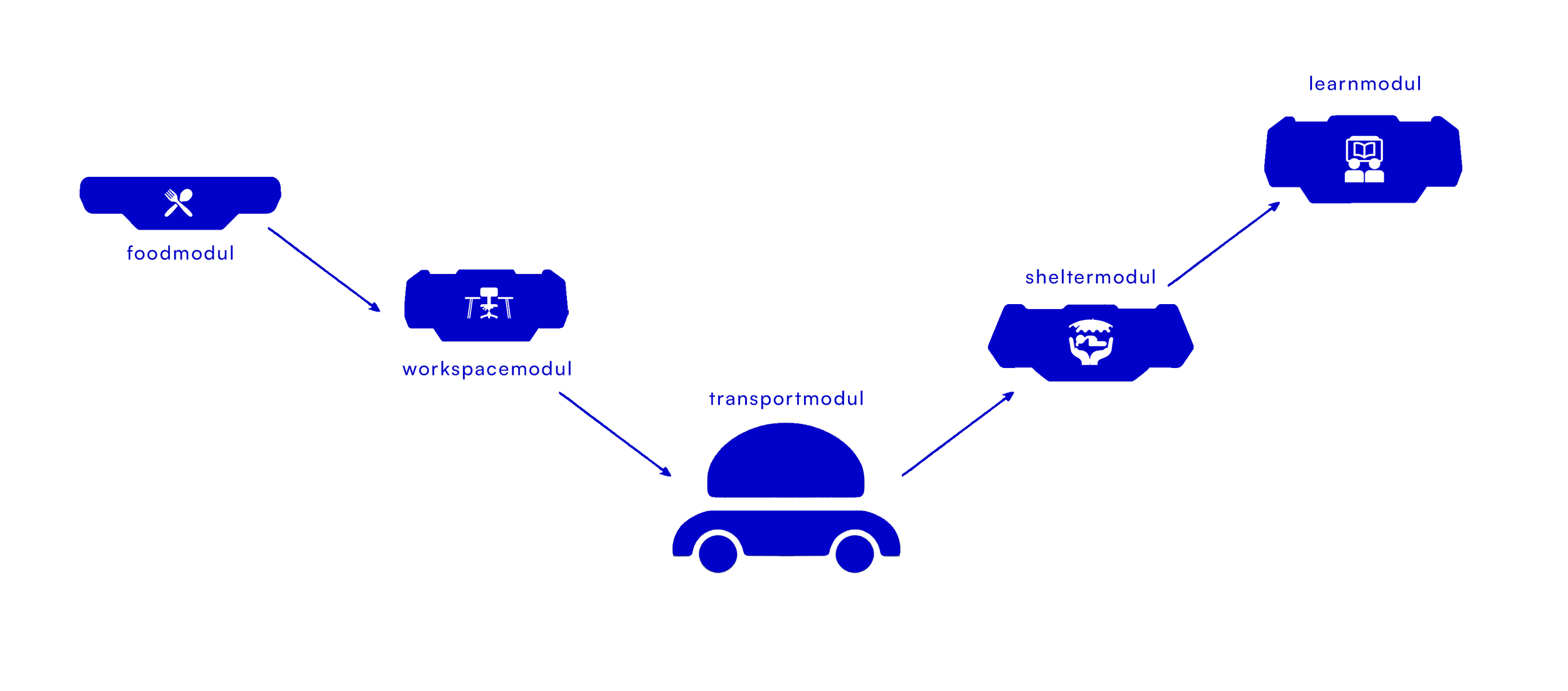STRATEGIC CONCEPT FOR A NEW MOBILITY & URBAN SPACE
At numen, I’m shaping a mobility system that redefines public space — modular, autonomous, and radically fair. I translate a complex vision of community-driven, sustainable transport into a concept that feels human, transparent, and alive.
„Cities have the capability of providing something for everybody, only because, and only when, they are created by everybody.“
Jane Jacobs
numen – Rethinking Urban Mobility for the Common Good
Cities today are still built for cars, not for people. Vast amounts of space, energy, and infrastructure are dedicated to individual motorized transport — even though private vehicles remain unused 95% of the time. Meanwhile, cities increasingly lack what they truly need: spaces for community, culture, rest, and shared experience.
With numen, I set out to design an alternative mobility system: modular, autonomous, and rooted in the values of fairness, transparency, and collective benefit. Rather than reinforcing ownership and exclusion, numen proposes a model based on shared access, democratic control, and technological openness.
This design study brings together systems research, critical urban analysis, and visionary design. It explores how existing infrastructures fall short — from profit-driven platforms and underfunded public transport to inflexible spatial logics — and outlines a bold counterproposal. From autonomous platforms and modular units to a user-focused interface and interaction model, numen sketches a cohesive ecosystem for future mobility.
The goal: to spark a broader conversation on what mobility could look like when it’s no longer driven by markets — but by society itself.
numen concept at a glance
The numen concept radically reimagines urban mobility — as a modular, adaptive, and community-driven system that flexibly responds to the needs of people and cities. To clearly communicate its core ideas, structures, and mechanisms, the following diagrams were developed. They visualize the key components, processes, and principles of the system, providing a clear foundation for understanding numen as a future-oriented mobility ecosystem.
From Status Symbol to Urban Building Block
Today, the car is simultaneously a means of transport, a status symbol, and a vacant private space — inefficient, expensive, and isolating. But emerging technologies such as modular vehicle architecture and artificial intelligence now make it possible to separate space from mobility. This lays the foundation for entirely new, shared infrastructures in urban environments.
Rethinking Space: Modular Needs
Instead of cars that sit unused 95% of the time, Numen relies on autonomous platforms that can connect with modular space units — exactly when and where they’re needed. Whether for transport, workspace, shelter, food, learning, sanitation, or cleaning, each unit is designed to meet the evolving needs of urban life. Urban space becomes flexible, shared, and demand-driven. Why own a vehicle when you can access space that adapts to your needs?
On-Demand Mobility – Space Where It’s Needed Most
Through the numen app, city residents gain access to a platform that allows them to summon and use numen units (autonomous platform + need-based module) flexibly. For example, a transport module can be requested, or a temporary workspace can be delivered directly to the doorstep of a remote working group. Users can also respond to local needs via the app — for instance, by voting on proposals like: “More transport modules between 7:30–9:30 AM in Prenzlauer Berg.”
In this way, the numen system dynamically adapts to people’s needs — creating space exactly where it’s needed.
Public Good AI Instead of Algorithmic Power
All user needs and vehicle movement logic are coordinated and planned by a central AI system. To prevent a so-called “paperclip scenario,” the AI is continuously monitored by an independent human oversight board. The AI itself is strictly aligned with the common good — it acts in the interest of all, shaping a fairer and more livable urban environment where space and mobility are accessible to everyone.
Get in touch
luca.moos@googlemail.com
+49 1578 5429192
Prenzlauer Allee 26
Berlin, 10405





